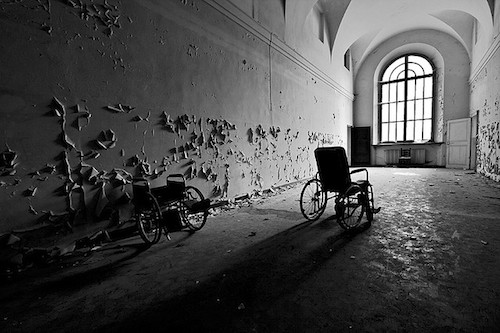 Culture & Ethics
Culture & Ethics
 Evolution
Evolution
 Human Origins
Human Origins
 Medicine
Medicine
What the Evolution Debate, and the Debate over Assisted Suicide, Have in Common

Whether the context is biology or cosmology, the ultimate issue at stake in the controversy over origins is the picture we carry around in our mind of what a human being is, what a human life is worth. There are two paradigms. They are mutually exclusive and separated by a vast gulf.
Either your life is of ultimate value, possessing unique dignity, potentially cast in the image of a transcendent designer and thus awesomely precious.
Or human life is not special, hardly more valuable — or indeed not one bit more valuable — than animal or plant life. Why? Because all life is equally the product of blind, uncaring forces, tossed up from the mixing of materials at random, to be “selected” by dumb, callous nature for survival and propagation, nothing more.
Wesley Smith has a brief, moving essay at First Things on “How We Portray Suffering and Suicide” that reminds you how this same debate plays out in other areas. Suicide as the preferred solution to suffering is just a logical application of the view that human life is nothing special. The problem, Wesley observes, is that the increasingly influential suicide culture saps hope and the will to live from people who might otherwise find meaning, even joy, in their lives despite or even because of pain.
Wesley isn’t insensitive to pain — far from it. But he resents the way suicide advocates spread the lie that the natural alternative to suffering is death.
Those of us who have never experienced severe physical disability have no clue about the depth of suffering it can cause. But NPR’s megastar talk show host Dianne Rehm does, up close and personal. Her husband John had severe and progressive Parkinson’s disease, leading him to suicidal despair. John asked his doctor for assisted suicide. Told that was not possible, he starved himself to death — a process that euthanasia activists call “voluntary stop eating and drinking,” or VSED.
Rehm has responded by promoting the legalization of doctor-prescribed death. A recent profile of her by NBC focused solely on the pro assisted suicide side, giving no voice to those who warn against legalization. In the story’s telling, John’s suicide was necessary. The only question should be how best to get it done.
It is a profound disservice to the gravity of this issue that the media give scandalously short shrift to the many stories of people who find meaning and hope in life even as they grapple with the anguish of profound disabilities. But the stories are not hard to find — if only journalists were as interested in promoting hope as they are assisted suicide.
Wesley tells some of those stories, including that of his friend Robert Salamanca. He concludes:
In my view, the pro-euthanasia followers’ posture is a great threat to the foundation upon which all life is based, and that is hope. I exhort everyone: Life is worth living, and life is worth receiving. I know. I live it every day.
By focusing so intensely on promoting suicide among those suffering from illness and disability — while mostly ignoring powerful and uplifting stories of people who manage to thrive in the midst of great pain — the media does society and the suffering a terrible disservice. As Salamanca wrote, “Reporting in the media too often makes us feel like token presences, burdens who are better off dead.”
The alternatives are despair and death, or hope and life. Go read the rest. This is what Wesley means by The War on Humans — it’s the value of human life that is under siege, on several fronts.
